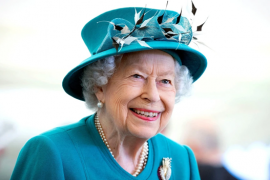It is no longer news that the advent of digitalization has brought about a rapid change in economic and socio-political activities of world nations. It is also a fact that there has been an intensive push among women to assume positions of leadership in different spheres of influence.
Shattering glass ceilings has not been an easy task; however, as women press for progress in the achievement of gender equality globally, the objective to not only have a quota system, but seize suitable leadership positions from which their voices can be heard has become paramount.
A study conducted by the World Economic Forum found women in 63 out of 142 nations had served as the head of state or government in the 50 years leading up to 2014.
As at February 2018, only a handful of women make the list of world leaders. Those women include
H.E. Angela Merkel, the Chancellor of Germany; H.E. Ana Brnabić , the Prime Minister of Serbia; H.E. Halimah Yacob, the President of Singapore; H.E. Mercedes Aráoz, the Prime Minister of Peru; H.E. Julie Payette, the Governor General of Canada; H.E. Jacinda Ardern, the Prime Minister of New Zealand; H.E. KatrínJakobsdóttir, the Prime Minister of Iceland; H.E. Dame Sandra Mason, the Governor-General of Barbados; H.E. Viorica Dăncilă, the Prime Minister of Romania; H.E. Paula-Mae Weekes, President-Elect, Trinidad and Tobago; H.E. Kersti Kaljulaid, President of Estonia; H.E. Theresa May, Prime Minister of the United Kingdom; H.E. Hilda Heine, the President of Marshall Islands; Aung San Suu Kyi, State Counsellor, Myanmar; H.E. Tsai Ing-wen, the President of Taiwan; H.E. Bidhya Devi Bhandari, the President of Nepal; H.E. Kolinda Grabar-Kitarović, the President of Croatia; H.E. Saara Kuugongelwa, the Prime Minister of Namibia; H.E. Marie-Louise Coleiro Preca, the President of Malta; H.E. Dame Marguerite Pindling, the Governor-General of The Bahamas; H.E. Michelle Bachelet, President of Chile; H.E. Erna Solberg, the Prime Minister of Norway; H.E. Dame Cécile La Grenade, the Governor-General of Grenada; H.E. Dalia Grybauskaitė, the President of Lithuania; H.E. Sheikh Hasina, the Prime Minister of Bangladesh.
According to UN Women reports Only 22.8 percent of all national parliamentarians were women as of June 2016, a slow increase from 11.3 percent in 1995. As of October 2017, 11 women were serving as Head of State and 12 serving as Head of Government. Rwanda had the highest number of women parliamentarians worldwide. Women there won 63.8 percent of seats in the lower house.Globally, there are 38 States in which women account for less than 10 percent of parliamentarians in single or lower houses, as of June 2016, including 4 chambers with no women at all.
This is a far cry from the 50% expectation of women who have constantly championed the crusade towards a better representation of women in governments.
In as much as women clamour for suitable positions, it is important to take into consideration the sad fact that a majority of the women who have held positions of power did so for less than four years. This begs the question: What quality of female leaders is being produced?
Getting positions for impact in world governments requires women to think like no ceiling exists and break through the bounds of sociocultural stereotypes. It also requires a lot of capacity building and self-development.
Just like the preparation needed for taking up a career, it is not enough to desire choice positions from which one can make a significant impact. Women should learn to train hard if they are to compete favorably in what is usually referred to as a man’s world.
Challenging oneself to be better with governance in view may involve receiving mentorship from the world’s finest leaders; learning from the best. It is true that many may not have access to mentors of their choice but that is where books and the social media come in.
Far gone are the days when people and in fact women rest on their oars and watch valuable opportunities pass them by.
How can women claim their prize?
For emerging economies, there is a lot to bedone as regards the representation of women in government. There is a need for a total overhaul of the system beginning from the grassroots to the top. Here are some of the steps towards achieving equal representation:
- Proper education: education is the foundation upon which any action of women across developing regions can be fruitful. From childhood, confidence should be instilled into the girl-child. She should be taught the importance of morals and the tenets of leadership. She should be taught to believe in her strengths and explore them. In the same vein, attention should not be shifted from the male-child as he should be taught not to see the girl-child as a rival but the missing piece of an uncompleted task. Women should educate themselves on leadership and good governance qualities as much as possible.
- Create unique leadership value systems: it has been observed that people get bored and frustrated with bad and corrupt leadership systems. Women should strive to carve a niche for themselves where most or all of the vices in regular systems of government are ruled out.
- Public service: As much as possible, women should undertake community service activities, philanthropic and humanitarian activities where their impact and goodwill will be felt. By constantly serving people it becomes a lifestyle and as such when called to serve in a higher position it becomes an easy task.
- Join women action groups that work: More women should be involved in action group activities where positive energy is channeled towards noble causes
- Put sentiments aside: One of the reasons why people see women as unfit to rule is because they tend to be more emotional than logical. It is okay for women to be emotional beings but just like in the boardroom, serious state maters require more of logical reasoning.
- Women need to believe in themselves: in recent times, a number of women groups have come up with slogans such as “sister support sister” and so on. It is very important that women join forces to support other women. Those currently in leadership positions are to provide mentorship and lead aspiring women to the top. Mothers are to encourage daughters as older women are to encourage the younger generation of women. This way, women will thrive in all spheres of influence
There is established and growing evidence that women’s leadership in political decision-making processes improves them. A new report from WomenRising2030, says male-dominated companies risk losing out on significant economic opportunities linked to sustainability and better performance.It is time to take full advantage of the opportunities before us and become in reality the women we only see in our dreams.
By: Eruke Ojuederie





Comments are closed.